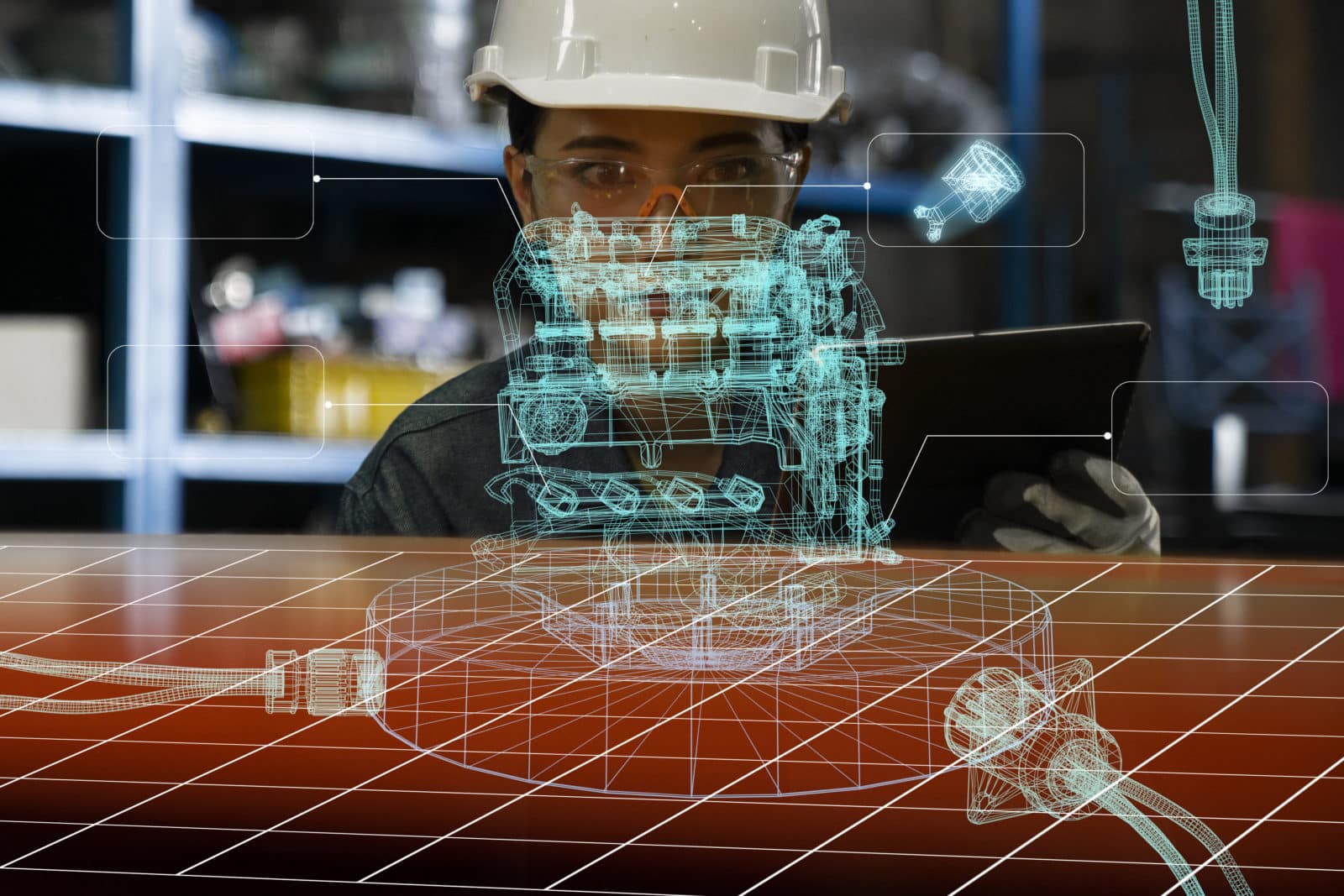 ©Weiquan Lin/gettyimages
©Weiquan Lin/gettyimages
Why is 6G essential for the Metaverse?
Imagine a bunch of smart engineers gathering to develop a groundbreaking product for their home appliances portfolio. They are on the verge of creating a product that will exceed our greatest expectations. Furthermore, using Metaverse technology, engineers and suppliers collaborate in the virtual world to accelerate product design and development. The engineers are confident that this will significantly shorten the project timetable and increase product quality. Nevertheless, when they got farther into their project, they discovered a serious issue: the network connection is awful. Lag is being caused by latency, and their cutting-edge technology is failing to keep up in the Metaverse.
Because of the network and infrastructure constraints, the team is unable to collaborate effectively and time-efficiently with suppliers in the Metaverse. The experts are unable to fix this issue despite their best efforts. They understand that a solution that not only solves the current problem but also prepares them for the future is crucial. So they need a network capable of meeting the demands of the Metaverse, which would necessitate massive volumes of data transfer at lightning-fast speeds.
That’s when the team recalled hearing about 6G, the next generation of wireless technology. They are aware that 6G promised extraordinary speeds and capabilities, but they had yet to witness them in action. Would it be able to withstand the Metaverse’s demands?
In the scenario above, 6G could unlock a new level of innovation, due to faster and more reliable technology paving the way for a future beyond anything we would ever imagine. To achieve the vision of the Metaverse, we will need a network infrastructure that can handle the massive amount of generated data. Current 5G technology is fast, but it has limitations especially in areas with a lot of interference. Limited coverage and lacking reliability are only a few examples.
Status quo and future development
The mobile network standard 5G was worldwide implemented in 2019. According to the German federal network agency the implementation of 5G in Germany has reached 79% of the entire area at the end of 2022. It has already enabled some use cases of the Metaverse, for example in the industry of autonomous driving, augmented reality and logistics. However, the expansion of the new network technology is proceeding slowly currently due to the semiconductor shortage.
As discussed earlier, the major changes are going to be caused by the new 6G technology. In Germany, there are going to be the first implementations of 6G in 2030 likewise to many other developed countries. Therefore, the federal ministry of research is investing 700 million € in the development of 6G. In conclusion we can say that it is just a matter of time when we are going to see the impact of Metaverse in our daily lives.
One of the key features of the Metaverse is its fully immersive and interactive environment. Users will be able to interact with each other in real-time, which means that the network infrastructure will need to be able to handle a massive amount of data in real-time. 6G technology is expected to be able to achieve speeds of up to 1 terabyte per second, which is about 100 times faster than 5G.
Another important aspect of the Metaverse is its ability to support a large number of users. With billions of people potentially accessing the Metaverse, the network infrastructure will need to be able to support a massive amount of data traffic. This is where 6G technology comes in. It’s expected to be able to support up to 1 million devices per square kilometer, which is about 10 times more than what 5G can support.
Metaverse will also require a low-latency network infrastructure. Latency is the delay between sending a request and receiving a response, and it is a crucial factor in determining how responsive the Metaverse will be. With 6G technology, the latency is expected to be as low as 1 millisecond, which is about 10 times lower than what 5G can achieve.
Another important feature of 6G technology is its ability to handle massive amounts of data without consuming too much energy. The Metaverse will require a lot of computing power, and energy consumption is a concern. 6G technology is expected to be much more energy-efficient than 5G, which means that it will be able to handle the massive amount of data generated by the Metaverse without consuming too much energy.

How 6G can accelerate the Metaverse and change our life
The emergence of the Metaverse, a virtual world where users can interact with each other and digital objects, is expected to revolutionize the way we live, work, and play. With the introduction of 6G technology, the Metaverse is poised to transform even further.
The gaming industry will change drastically. With 6G, gaming experiences will become even more lifelike. An example for that is the possibility to create real-time games that require split-second decision making. In addition to that, the high bandwidth of 6G can lead to new gaming types, such as virtual reality games.
Our working environment has already changed due to the Covid crisis. The Metaverse will additionally enable new methods to work together. Instead of Zoom calls it can create virtual Meeting rooms with real-time collaboration. This will not only change the way we work but also the way we communicate with each other.
The Metaverse combined with 6G could also transform the way we design, build, and manage our cities and infrastructure. For example, architects and urban planners could use the Metaverse to create digital models of buildings and infrastructure projects, allowing them to test different scenarios and designs before construction begins. In addition, smart cities could leverage the Metaverse and 6G to create more efficient and sustainable transportation systems, energy grids, and other infrastructure.
In conclusion, the Metaverse combined with 6G technology has the potential to transform the way we interact with each other and the world around us. From immersive gaming to remote work and collaboration, smart cities and infrastructure, the possibilities are endless. As the Metaverse continues to evolve and 6G technology is developed, we can expect to see a new era of digital transformation that will impact every aspect of our lives.
Bosch and 6G
Not only governments, but also huge technological corporations, are making significant investments in 6G to enhance the technology. Bosch is actively involved in worldwide projects and partnerships, such as those with Nokia, to create the foundation for 6G technology and develop industrial IoT solutions based not just on 5G technology but also on the most recent 6G technology. One of the main challenges, that we currently experience at Bosch with regards to the Metaverse is latency. With the available internet infrastructure we are still limited in providing the ideal user experience. That’s where 6G is highly relevant, it can improve the collaboration and user experience in the Metaverse. With the higher data transfer rates of 6G, we expect that our use cases such as virtual collaboration, simulation or engineering become even more immersive, more smooth and less deferred and time-delayed.

